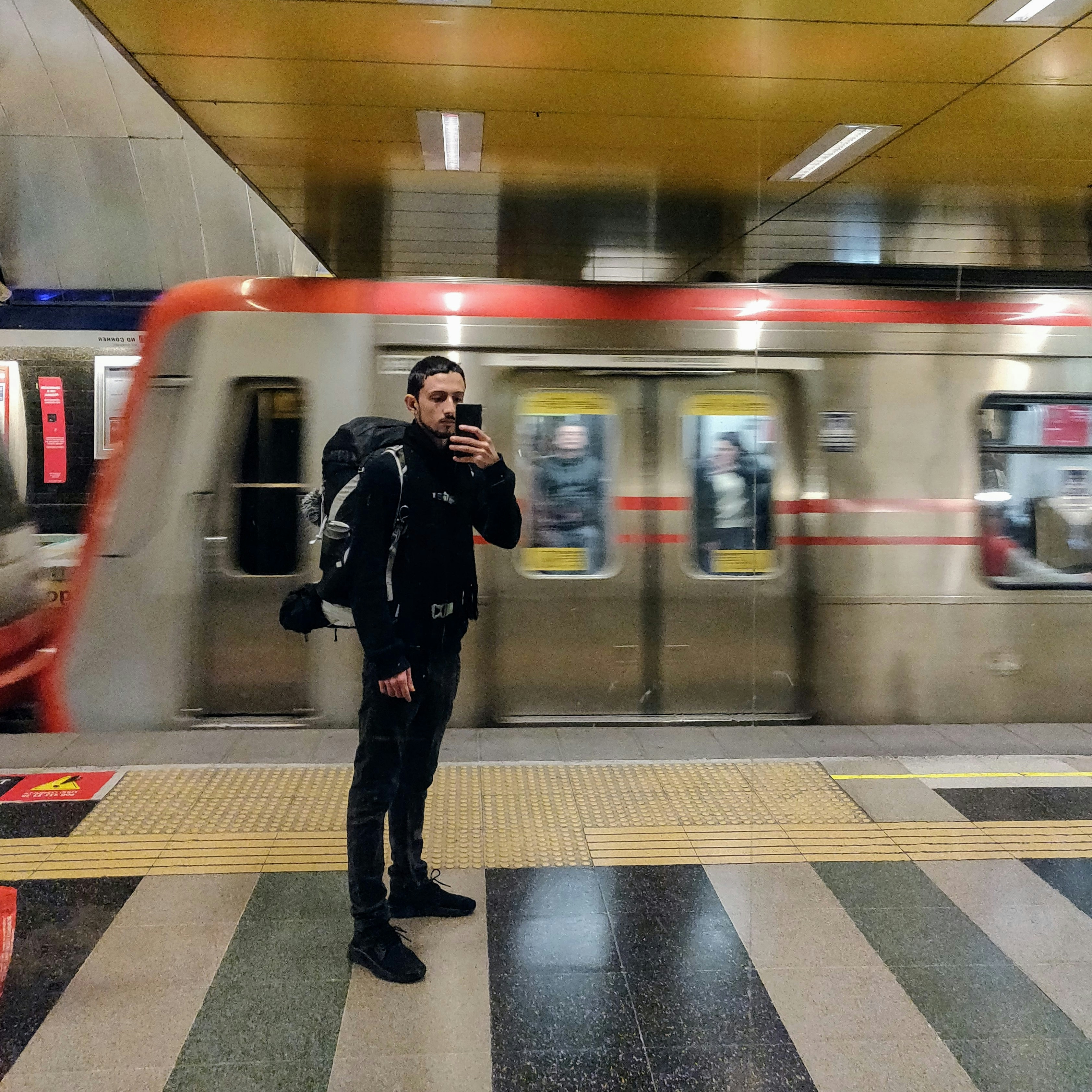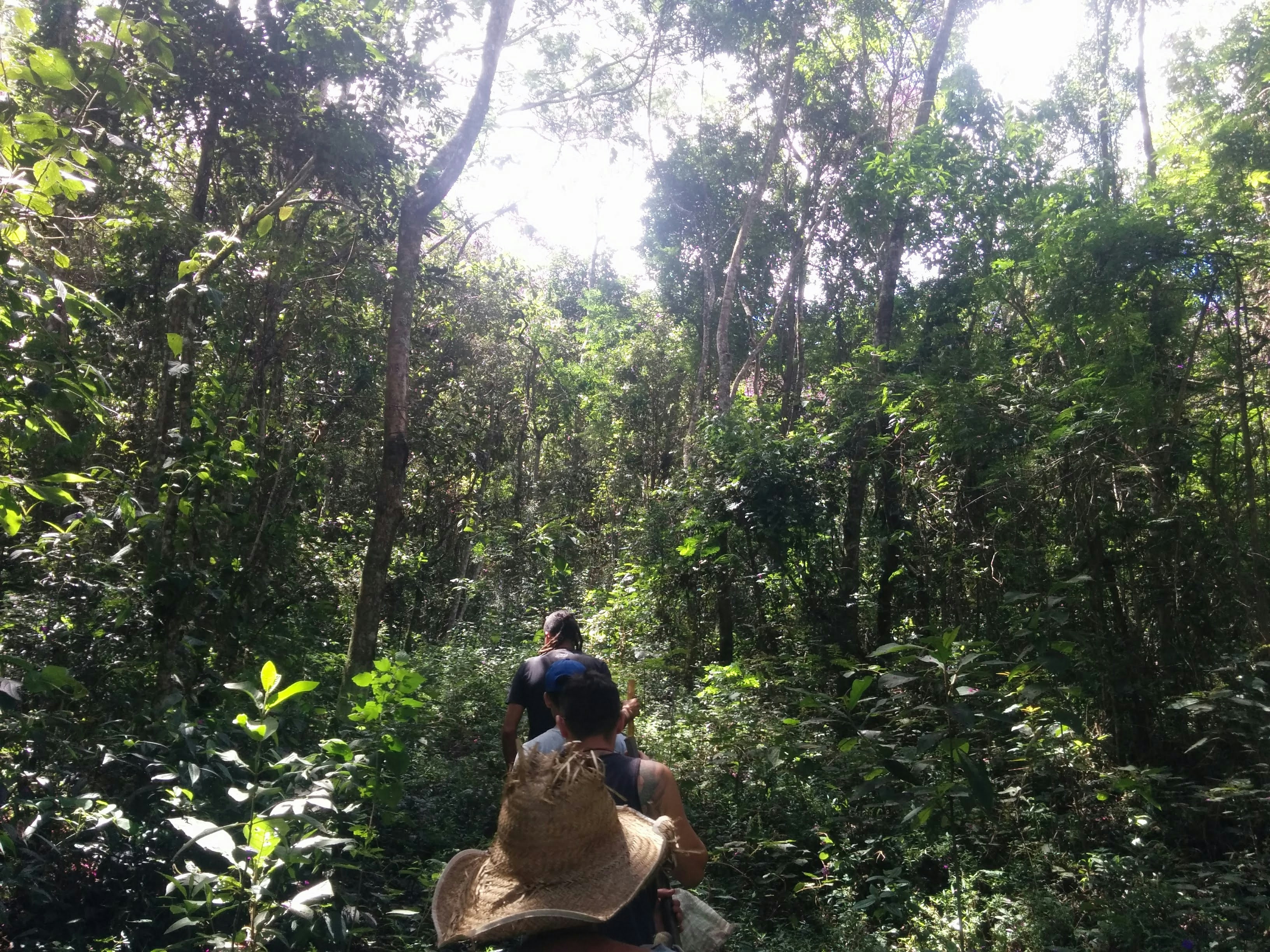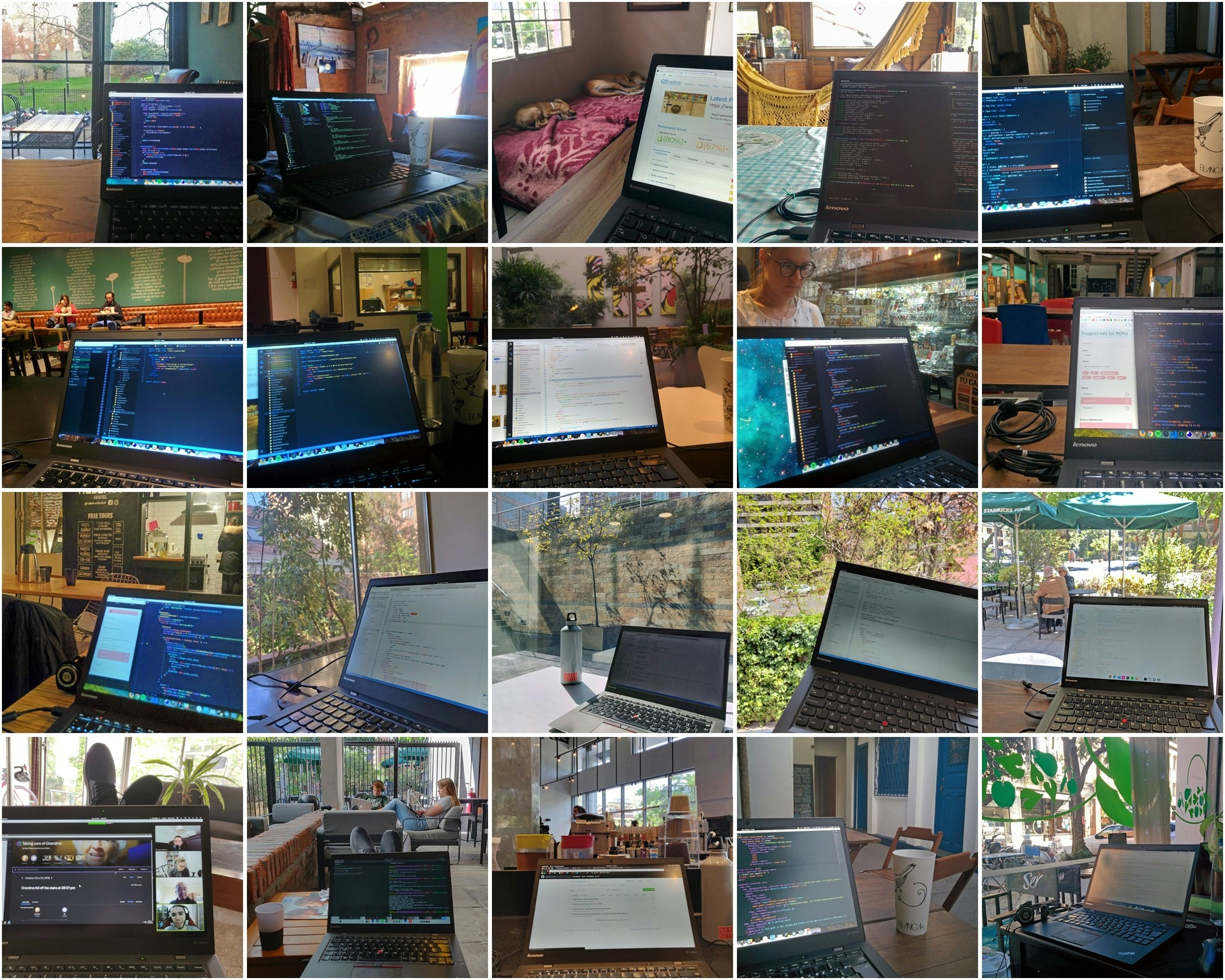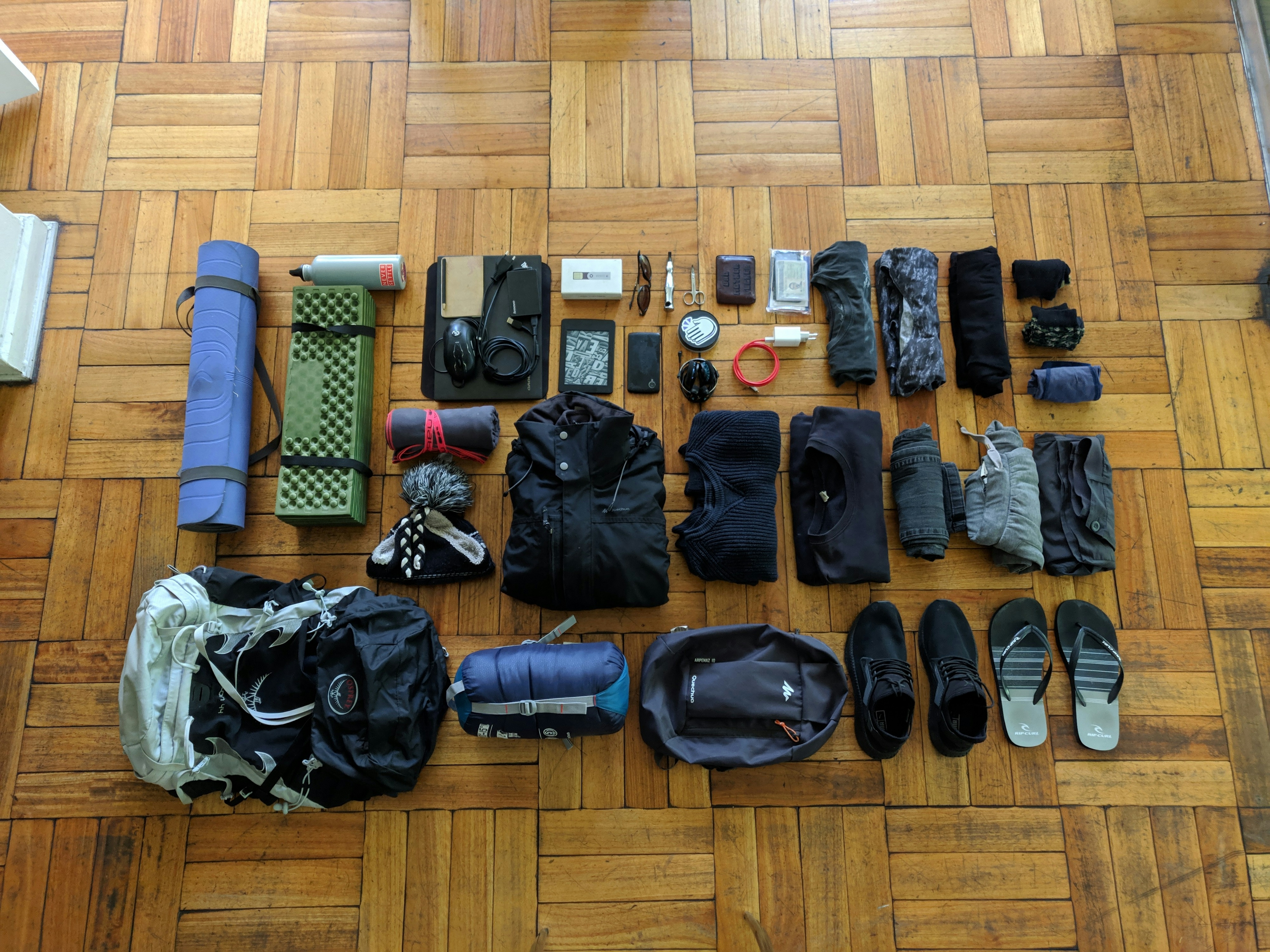What I learned from living for one year as a nomad
Dec 02, 2018
About 12 months ago I was in southern Brazil going from Joinville, the city I lived, to Curitiba, where I would volunteer for a few weeks in a hostel improving their website.
That would be my first experience as a nomad, living with not more than a backpack with just about a laptop, 3 t-shirts and clothes in an equivalent amount, a yoga mat and some camping equipment that I used twice.
I visited around 40 cities, 4 countries in South America and I’ve stayed in hostels, farms, eco-villages, Airbnb apartments and family houses. Met some interesting projects and encountered countless people, many of them also on the move. Learned a lot about many things, but mostly about myself.
The Leap
The first thought about living like this struck my mind during an off-road bike ride near my hometown in Minas Gerais, Brazil. I was amazed by the landscape during my ride, and I just wanted to keep riding, but the sunset was near and I had to return home because… well, I think most of us grow up returning home every day, and not taught or prepared to know how to live anywhere, anytime.
I began thinking about how we get literally locked by all the cultural and conceptual constructions and structures that arise around us. How could I overcome this? Thinking back, the decision to experiment this kind of life meant a big barrier — mostly a barrier of doubt — to break through.
How to survive and have a place to sleep while traveling? How to find work opportunities? What was essential to bring with me? How could I build a sustainable living around this idea? With those questions in mind, I started to research a lot about traveling, volunteering, and the digital nomad movement. Then, it took probably a year and a half to mature the idea so I could feel confident about doing it.
I let go of my current job at the time, the room in a comfy apartment that I used to rent, the approval from some of the family, most of my things, including clothes, books, and gadgets. I didn’t even have so many things, but I got impressed by how it was tough to get rid of everything I had and leave an empty room at the end. Those things felt like they were supporting me, but I realized they were undermining my development as a human being, and I had to let go of them. Today I don’t even remember what I used to have, and I don’t miss it.
For me, the idea of traveling came up as a way to flow along with the universe. Nature is very fluid, things are constantly changing. Being stuck in a routine, living in the same place for long periods and doing the same stuff every time started to feel like fighting the nature of things.
Although I spent a lot of time preparing myself as it was some kind of big leap, on the first day of traveling it already felt very simple and natural. After all, I think it’s not so much of a big deal as it may look, and the leap was more inside than outside.
Now I can say that it was probably one of the best decisions I made. At first, it was supposed to be a 1-year experiment, but now I want to keep going.
The first contact
At the time, I’ve already been working for many years in front of computers, especially programming. I love computers, but I wanted to experience more stuff that life has to offer and be more in contact with nature.
I already knew some websites like **Worldpackers** and **Workaway**, where you can find volunteer opportunities in endless places doing all kinds of activities. They seemed like good tools to achieve a sustainable way to travel for a good amount of time at a low-cost — you receive accommodation and sometimes food in exchange for your service. So **I subscribed myself on both, and in fact, it came out really well**.
My first volunteering experience while traveling was improving a website, something I was very used to, but the following ones ranged through many different activities, like bioconstruction, cleaning, cooking, reception, and language learning.
I found myself doing things like:
-
building a dry toilet with bamboo and clay
-
giving workshops on diverse subjects like mandala drawing, cryptocurrencies, and personal development
-
preparing breakfasts
-
bringing fresh milk from the farm nearby
-
cooking (and washing the dishes) for groups of more than 30 people
-
doing SEO and Google Analytics consulting

Needless to say, I had great experiences volunteering and getting to know slightly-to-very different worlds. It broadened my perspective a lot. I learned a lot of stuff and met wonderful, wise, lovely people.
I was able to visit very beautiful and chilly places where I could just relax and appreciate nature simply by stepping out of the building — and sometimes not having a building at all. Ultimately, it provided me a simple, fun and low-cost way to travel.
But at some point, it started to feel like I was letting go too much of my personality, and I started to find myself in situations that I was not that interested. It also felt like I was not offering and practicing my best skills, thus not reaching my full potential.
I realized that what I enjoy doing the most is messing around with computers, trying new technology and listening to good sound systems. It also became clear that despite I love being around nature, I also enjoy urban environments. It felt like I was experiencing the very act of “knowing yourself” that I had read or heard many times, and for me, it meant building balance from within and being confident with who I already was.
I became able to feel more familiar with who I am only once I was exposed to and experienced the vast possibilities that reality provides. I believe that there are many levels of self-realization through life, and this process can happen in many ways, but freestyle traveling can facilitate and potentialize it a lot.
You may have a lot of interests and many things that you would want to do, but you don’t know exactly what it could mean, and what comes with it. For instance, **working with plants and the earth seemed a beautiful idea **when I was stuck in an office with artificial light on a sunny day, but once I tried it for real I became grateful that I have skills to work away from direct sunlight while sitting on a chair and basically just thinking and moving my hands.
During those experiences, I was still coding in my free time, mostly for fun on some personal projects like tripby.org. After getting those insights about myself, I started to spend more time coding, and it felt like home again. But now it was different because I was doing it in novel environments.
Sometimes it was a challenge because many places didn’t have the best atmosphere to do computer work. Sometimes I would not have a desk to stay comfortably for reasonable periods of time, the internet connections were not always reliable and most people around me were on vacation, spending the day at the beach or the lake, relaxing and mostly staying away from technology.
I started to wonder about how I could keep traveling by working on my computer.
Becoming a (more) digital nomad
I spent a few months looking into freelancing websites and also building a very early version of my own SaaS that was like a baby equivalent of Squarespace.
I also started to focus on work exchange opportunities that were more related to technology and that I could do some of my own work more easily while in my free time. That worked for a while and it did feel better.

Somewhere in between, I met Startaê — *a Brazilian team of designers and developers who help startups make positive changes around the world. *There was an opportunity to work with them as a developer in an interesting and aspiring project. No office, no fixed work schedule, 100% remote. And with people that I later realized were creative, kind and fun.
Although it happened just in time for me — like many things when you just let go — it was also kind of unexpected. The combination of the above was something not so usual for me.
In the first weeks joining them, I was already surprised by how the whole team not only advocates remote work but actually makes it happen. In fact, one of the projects driven by Startaê is Officeless — a movement that supports and spreads valuable information on how to work remotely in a reliable way.
Working with Startaê not only pushed me a lot closer to the way of traveling that feels right for me but also brought a lot of learning. Working remotely in a distributed team forces you to improve how you communicate, organize yourself and how you take responsibility for what you do. It also meant approaching my destinations and my travel schedules in a slightly different way, now with more thought and looking more far ahead.
Traveling provided me many encounters with like-minded people, and I felt that joining Startaê was something just like those encounters, but in an odd way because I never met anyone of the team in person!
Ways of traveling and what to carry
When the idea of backpacking was introduced to me, I thought of it as a self-contained activity, and that there was a right way of doing it or at least a general approach to follow. Before departing, I researched a lot about “how people were doing it” and what to carry. In the end, I realized that it is much broader than that, and more like a personal thing. It is nice to be inspired but more importantly to do it your way and also be open to adjusting along the way.
One of my goals was to go towards a minimalistic lifestyle, an idea that I got mostly from reading and hearing some of The Minimalists content, so I tried to pack the less stuff I could, also inspired by this article.
I got surprised about how it is possible to live with so little. That meant changing some of my standards and habits, which I would likely want to keep even if I stopped traveling because they brought simplicity and flexibility to my life.

What you can see in the picture above is mostly what I carry with me. The last time I checked it weighed about** 11kg total (~24lbs) and fits in a 44 L backpack**.
Of course, I use more than that to live day to day, for instance, nondurable things like toothpaste or appliances like a stove, but those are things I can find anywhere, and even if I don’t, I’m pretty sure I could live without it for a few days. Some of the stuff I used very few times and I like to keep them just in case, like in the day I slept in a bus terminal — which the sleeping bag and insulation mat came very handy.
But again, there are many approaches to this. I met a guy that travels mostly by foot but also crossed the Atlantic ocean on a sailboat. He likes to be very self-sufficient so he always has a tent with him, equipment to cook and a reasonable amount of food. When I heard his story it sounded very appealing and made me wonder what kinds of whole different situations and encounters all those different styles can provide.
You’re sick of hangin’ around and you’d like to travel,
Get tired of travelin’ and you want to settle down
In my first 8 months, I would spend on average 2–4 weeks in a given city or location. I enjoyed staying in busy places with people coming and going on a daily basis. Lots of energy, information, and possibilities all the time.
It was fun and special being in a hostel and organically forming a group of 10 like-minded people in just an afternoon and then going out at night like they were lifetime friends, but also mind-boggling because those people would leave the next day and then the same thing would happen all over again a week after.
I also got tired about constant change and uncertainty, especially when it came to infrastructure. I started to put a lot of effort on researching the best place to stay in my next destination considering my budget, and if I didn’t like a place and decided to move after spending a few days, it meant packing and unpacking everything again.
I would leave every place wondering what could happen if I stayed longer and connected more deeply with it and the community. It started to feel like I was missing something.
With all that in mind, I decided to try something different when I went to Santiago, Chile. I tried to approach the city as I was living there, instead of passing by. Among other things, I rented a room like a local would do, with no plans of leaving, and started attending the same co-working space on an almost daily basis.
That solved a lot of my pains and brought me some peace. I was able to know people — especially my flatmates — in a deeper way. To get familiar with the city and being able to navigate without Google Maps. To visit venues that I enjoyed more than just a few times, create some relationship with it and also notice how it can change over time. And little things like encountering friends randomly at the subway station.
Most importantly, it showed me that it was not just about the things I did differently, but how my mind changed about what it means to be in a place. Ultimately, I think I learned better how to keep moving, and I feel more prepared to take the most of the next places I go.